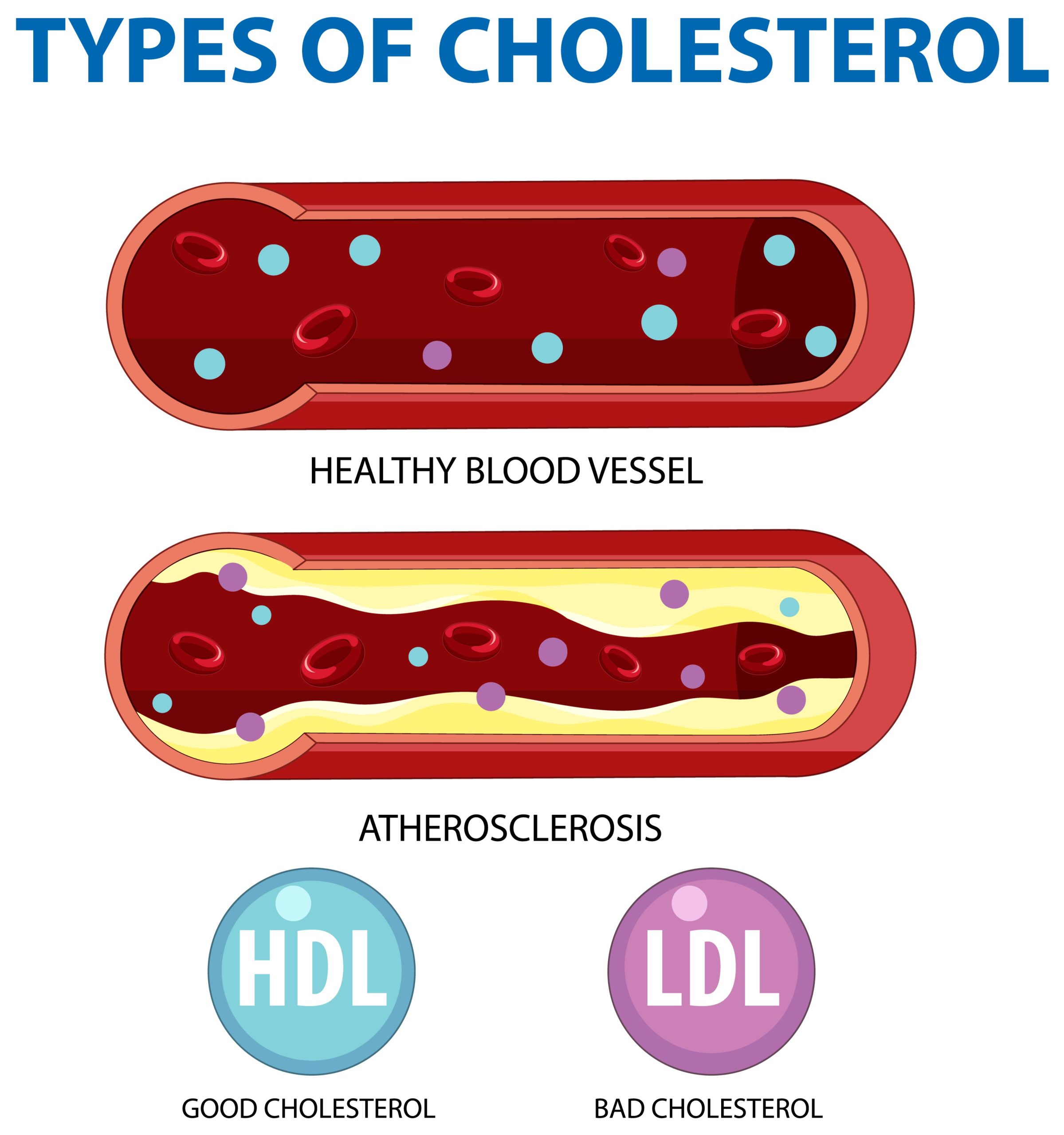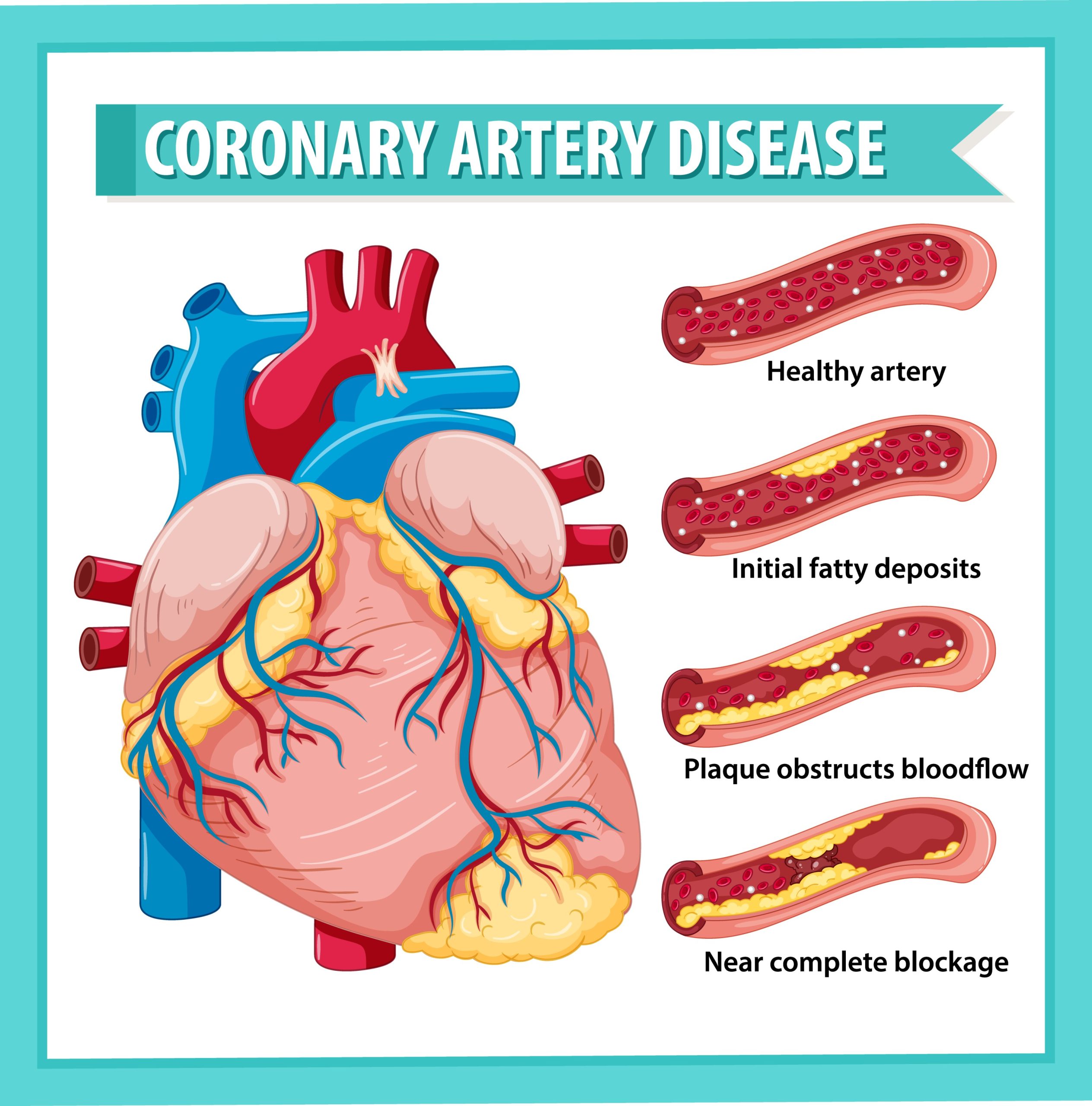How is Cholesterol linked to Heart Diseases?
If you are reading this, you’re probably concerned about your health and the role cholesterol plays in the healthy functioning of your body. That is a critical first step!
What is cholesterol?
Cholesterol is waxy in nature. It’s not necessarily “bad.” It is required by your body to build cells, as well as to produce vitamins and other hormones. However, too much cholesterol can cause serious cardiovascular problems such as heart attacks and strokes.
But what is the evidence that having high cholesterol or high LDL (low-density lipoprotein) levels increases your risk of heart disease? You might be surprised to learn that more than 90% of studies show a link between high cholesterol and heart disease. They were evident of the fact that high LDL cholesterol caused a spike in mortality and vice versa in adults more than 60 years old.
Remember that there are two types of cholesterol: LDL (“bad” cholesterol) and HDL (“good” cholesterol). These are the forms of cholesterol that circulate in the blood.
LDL cholesterol is the primary cause of artery-clogging plaque. HDL works to remove cholesterol from the bloodstream.
What causes cholesterol levels to rise?
If your diet includes a lot of saturated fat, trans fat, and carbohydrates, there are high chances that your cholesterol levels will rise.
Being overweight is one of the foremost reasons for having high cholesterol levels. This also additionally becomes a risk factor for heart disease.
Your genes influence the amount of cholesterol your body produces. If your family has a history of high levels of cholesterol in the blood, you, too, will probably inherit the same.
Medical conditions such as hypothyroidism, liver disease, and kidney disease can all cause an increase in cholesterol levels in the blood.
As we get older, our cholesterol levels rise. Women have lower cholesterol levels before menopause than men of the same age. Women’s LDL levels tend to increase after menopause.

Cholesterol Fact |
What are the symptoms of high cholesterol?
Because high cholesterol does not cause any symptoms, many people are generally unaware that their cholesterol levels are abnormally high. As a result, it is critical to determine your cholesterol levels. Lowering high cholesterol levels lowers the risk of developing heart disease. It also lowers the chances of having a heart attack or dying from heart disease, even if you already have it.
Healthy Cholesterol Level Borderline high: 200–239 mg/dL High: 240 mg/dL and up |
How is high cholesterol responsible for heart diseases?
When you have abnormal levels of cholesterol in your blood, it gets collected in the walls of your arteries, resulting in atherosclerosis, a type of heart disease. Blood flow to the heart muscle is slowed or blocked as the arteries narrow due to high LDL cholesterol levels. As you might know, blood transports oxygen to the heart. So, when insufficient blood and oxygen reach the heart, you may experience chest pain. Furthermore, a heart attack occurs when the blood supply to a portion of the heart is entirely cut off due to a blockage.
Other diseases that can be caused due to high LDL:
Coronary heart disease (CHD) or ischemic heart disease are other names for coronary artery disease (CAD). This is what the majority of people mean when they say “heart disease.” Many people are unaware that CAD can affect young people. In fact, one in every five people who die from CAD is under the age of 65. Thus, it is critical to have your cholesterol checked at a young age.
This occurs when atherosclerosis affects your carotid arteries. The carotid arteries transport blood to the large front part of your brain. When plaque constricts these arteries, your brain does not receive enough oxygen-rich blood.
There is a medical emergency here. It occurs when an artery in or leading to the brain becomes blocked, cutting off the blood supply to the brain. A portion of the brain dies due to a lack of oxygen.
Peripheral artery disease (PAD) occurs when atherosclerosis affects the arteries in your legs or arms. Because they are located away from your heart and the centre of your body, the arteries in your legs and arms are considered “peripheral.” PAD is more common in the legs, but it can also occur in the arms.
High LDL can lead to hypertension. Cholesterol plaque and calcium cause artery hardening and narrowing. As a result, your heart must work much harder to pump blood through them. As a result, your blood pressure rises to dangerously high levels.

How to reduce cholesterol levels?
Consult the right doctor about the best way to lower your cholesterol. Some people only require minor lifestyle changes, such as eating less saturated fat. Others require both lifestyle changes and medication. People with cholesterol-related medical conditions may require a more complex approach.
Remember that even the best plans require time to implement. And we all experience setbacks. It is acceptable to struggle, and it is also acceptable to inform your provider when a plan isn’t working. Even the most stringent lifestyle changes may not be enough to reduce your cholesterol levels. This is because your liver produces the majority of your body’s cholesterol.
Take things slowly at first. Take control of what you can, but remember that medications and other medical interventions are available to help fill in the gaps.
Follow preventions and make some alterations in your lifestyle
You can help prevent high cholesterol by doing the following:
- Consume a low-salt diet rich in fruits, vegetables, and whole grains.
- Limit your intake of animal fats and use good fats sparingly.
- Lose excess weight and maintain a healthy weight
- Stop smoking
- Try exercising at least for 30 minutes on most days.
- If you must consume alcohol, do so in moderation.
- Manage stress
- Get annual checkups, especially if you have a family history of heart disease and are discovered to be at risk.
Seek the right consultation - Consult a specialist at GHC for your cholesterol issues
German Heart Centre (GHC) is a renowned medical centre established in Dubai Healthcare City since May 2006. GHC has world-class specialists who can advise you on various ways to manage LDL levels and avoid heart problems. Our strong team of consultants works towards preventing and treating cardiology diseases in time with utmost proficiency.
We are proud of our multi-speciality consultants, who work together to provide patients with minimally invasive and cutting-edge treatment approaches and care.
Book your consultation today!

